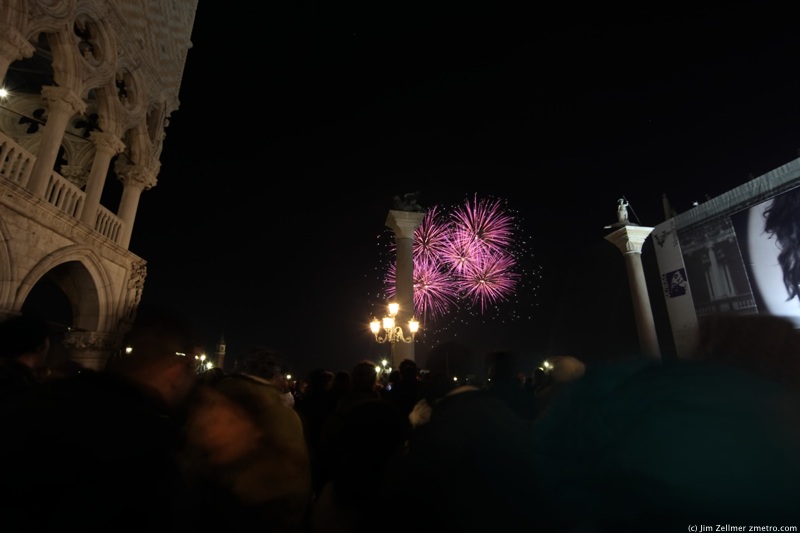For sheer, toe-curling embarrassment, it’s hard to choose between last year’s populist attack on Goldman Sachs by the US Securities and Exchange Commission and this week’s cringe-worthy response from the investment bank.
Last April, when the SEC filed suit against Goldman, the bank could have fought back. The suit complained it had sold fancy mortgage securities without disclosing that a hedge-fund manager, John Paulson, was betting that those same securities would blow up. To which Goldman could have answered: so what? Any time an investment bank sells any derivative, it should be obvious to the buyer that somebody somewhere must be taking the other side. The SEC’s assertion that Goldman had misled customers about the nature of Paulson’s involvement was potentially more damaging, except that the SEC produced no evidence to make this charge stick.
It was surely not beyond the wit of Goldman’s publicists to communicate these simple points. Banks cannot be held responsible for the profits or losses of their clients, since middle-men necessarily have customers who lose as others win. But after one vain attempt to explain market making at a belligerent Senate hearing, Goldman’s boss, Lloyd Blankfein, gave up. He settled with the SEC, even though most lawyers think he could have beaten the charges. Then he ordered up an elaborate cleansing ritual to relaunch the firm of Goldman Sachs.
Several months later, the fruits of Goldman’s sun salutations are out. A 67-page manifesto of self-purification proclaims that “our clients’ interests always come first,” and that “if we serve our clients, our own success will follow.” But these pieties misrepresent the true nature of an investment bank just as surely as the SEC did.
Study: We’ve Got Plenty of Land for Biofuels
One of the great arguments against biofuels is the wisdom, if not the morality, of using land to produce fuel instead of food. But research out of Illinois suggests it doesn’t have to be an either-or proposition.
Researchers at University of Illinois Urbana-Champaign have found that biofuel crops cultivated on land unsuitable for food crops could produce as much as half the world’s current fuel consumption without adverse impact on food crops or pastureland.
The study, published in Environmental Science and Technology, identifies land around the world that is unsuitable for food production but could be used to raise biofuel feedstocks like switchgrass.
According to the researchers, many studies examining biofuel crop viability focus on yield — how productive the crop can be. They wanted to examine land availability to determine whether it is possible to produce sufficient biofuel to meet demand without sacrificing food production.
The Rise of the New Global Elite
IF YOU HAPPENED to be watching NBC on the first Sunday morning in August last summer, you would have seen something curious. There, on the set of Meet the Press, the host, David Gregory, was interviewing a guest who made a forceful case that the U.S. economy had become “very distorted.” In the wake of the recession, this guest explained, high-income individuals, large banks, and major corporations had experienced a “significant recovery”; the rest of the economy, by contrast—including small businesses and “a very significant amount of the labor force”—was stuck and still struggling. What we were seeing, he argued, was not a single economy at all, but rather “fundamentally two separate types of economy,” increasingly distinct and divergent.
This diagnosis, though alarming, was hardly unique: drawing attention to the divide between the wealthy and everyone else has long been standard fare on the left. (The idea of “two Americas” was a central theme of John Edwards’s 2004 and 2008 presidential runs.) What made the argument striking in this instance was that it was being offered by none other than the former five-term Federal Reserve Chairman Alan Greenspan: iconic libertarian, preeminent defender of the free market, and (at least until recently) the nation’s foremost devotee of Ayn Rand. When the high priest of capitalism himself is declaring the growth in economic inequality a national crisis, something has gone very, very wrong.
This widening gap between the rich and non-rich has been evident for years. In a 2005 report to investors, for instance, three analysts at Citigroup advised that “the World is dividing into two blocs—the Plutonomy and the rest”:
GPS Follies
GPS Follies
“Ha, Ha, Ha, GPS, GPS!” – a senior Florentine citizen standing outside my rented car’s window, pointing at our TomTom GPS.
We followed the TomTom’s instructions from Fiesole through Florence to our evening destination: Central Bologna. However, the TomTom directed us to a dead end: impassable train tracks were straight ahead and we had no nearby alternatives.
After providing the elderly man his GPS humor, I completed a U-Turn and drove east toward an intersection. The TomTom protested, but later “recalculated” the route and we were on our way to Bologna, via the Autostrada.
We had a few more odd navigation moments, one in Lyon and another in Parma. All in all, the TomTom performed well. TomTom sells a GPS receiver that contains both North American and European maps.
** A side note. I used the maps app on my iPhone to augment the TomTom (European iPhone data plans are quite expensive for visiting Americans). Xcom Global provides a useful alternative for on-the go connectivity: unlimited use mifi devices. I highly recommend Xcom.
Jean-Louis Gassee’s recent GPS experiences inspired this note.
Lyonnaise Salad
Joy to the World: Christmas, 2010
Joy To the World from Jim Zellmer
Recorded Christmas Day, 2010 in Parma, Italy
Christmas: Lyon – Turin – Parma – Florence – Bologna – Venice; a Few Recommendations

Lodging recommendations & comments:
- Lyon, France: Artelit. A superb location with a fabulous proprietor. Frederic Jean’s friendship and professionalism was a joy to experience, particularly when facing a very difficult parking situation! Highly recommended.
- Turin: Best Western Hotel Piemontese. A surprisingly spacious facility, conveniently located near the rail station, bus stops and a number of Turin destinations. Great service and a surprisingly extensive breakfast.
- Parma: A number of hotels were closed over Christmas. We stayed here: Vittorio Dalla Rosa Prati. Friendly service and a fabulous location adjacent to the Baptistry. Rooms include a refrigerator, sink and range so one can shop at the nearby markets and prepare meals.
- Florence: Relais Uffizi. A charming, small find next to the Uffizi Gallery Musuem. Close to everything with very helpful staff.
- Bologna: Albergo Centrale. Tremendous location in a fascinating city. Don’t forget the gelato, which was poetic.
- Venice: Hotel Antico Doge. Very helpful staff with superb restaurant recommendations. Well located, but smoke seemed to be present in the room, unfortunately.

I am very thankful to have “met” Madeline Jhawar, who suggested the stops in Turin, Parma and Bologna. I am grateful for her assistance and intelligence. I also took a look at Lonely Planet’s suggestions, the New York Times travel section and Karen Brown.
We rented a car from Europcar, flew via Lufthansa (insufferable coach seats in my experience but very friendly staff) and used buses, trams, water buses, gondolas and most of all our feet.
Politics & The Internet
FOR wizened cyberpunks, it is a seemingly timeless debate: does the internet inherently promote openness and democracy, or can it just as easily strengthen the hand of authoritarian regimes? A decade ago Andrew Shapiro’s book “The Control Revolution” argued the former, while Shanthi Kalathil’s and Taylor Boas’s tome “Open Networks, Closed Regimes” dissented. This week sees the publication of “The Net Delusion: The Dark Side of Internet Freedom” by Evgeny Morozov, which sides with the pessimists.
The argument usually ends in a stalemate of competing anecdotes. Street protests organised by mobile text messages successfully oust Philippine President Joseph Estrada in 2001; Iran’s supposedly Twitter-powered Green Movement gets quashed in 2009. And so on. Clay Shirky, one of the preeminent public intellectuals of the internet, who has previously sided with cyber-utopian optimists, has now elegantly squared the circle by establishing an intellectual framework to consider the topic in “The Political Power of Social Media”, an article in the current Foreign Affairs. (Users must register to access the complete essay, but it is free.) Mr Shirky’s essay makes three principal contributions to the debate.
The AI Revolution Is On
Diapers.com warehouses are a bit of a jumble. Boxes of pacifiers sit above crates of onesies, which rest next to cartons of baby food. In a seeming abdication of logic, similar items are placed across the room from one another. A person trying to figure out how the products were shelved could well conclude that no form of intelligence–except maybe a random number generator–had a hand in determining what went where.
But the warehouses aren’t meant to be understood by humans; they were built for bots. Every day, hundreds of robots course nimbly through the aisles, instantly identifying items and delivering them to flesh-and-blood packers on the periphery. Instead of organizing the warehouse as a human might–by placing like products next to one another, for instance–Diapers.com’s robots stick the items in various aisles throughout the facility. Then, to fill an order, the first available robot simply finds the closest requested item. The storeroom is an ever-shifting mass that adjusts to constantly changing data, like the size and popularity of merchandise, the geography of the warehouse, and the location of each robot. Set up by Kiva Systems, which has outfitted similar facilities for Gap, Staples, and Office Depot, the system can deliver items to packers at the rate of one every six seconds.
The lounge suit, battledress of the world’s businessmen, is 150 years old – possibly
BUSINESS and politics are full of surprises–and a near certainty. Whether they are politicians, bankers or trade-union leaders, men nearly always meet other men in suits. The uniform of capitalism has conquered more of the globe than capitalism itself. When Barack Obama first visited Hu Jintao, paramount leader of the People’s Republic of China, the men were clad in near-identical dark blue suits, white shirts and red spotted ties.
It has become a symbol of conformity. “Suit” was the chosen insult of hippies to describe a dull establishment man. The garment has been ostentatiously rejected by Silicon Valley titans like Steve Jobs of Apple, Mark Zuckerberg of Facebook and Sergey Brin of Google. Yet the business suit has an exciting and mysterious history that should give wearers a tingle of pleasure every time they put one on. It is a garment born out of revolution, warfare and pestilence. The suit still bears the marks of this turbulent past as well as the influence of Enlightenment thinking, sporting pursuits and a Regency dandy. In the year that may well mark the 150th anniversary of the suit it seems a shame that no celebrations were held in its honour.
